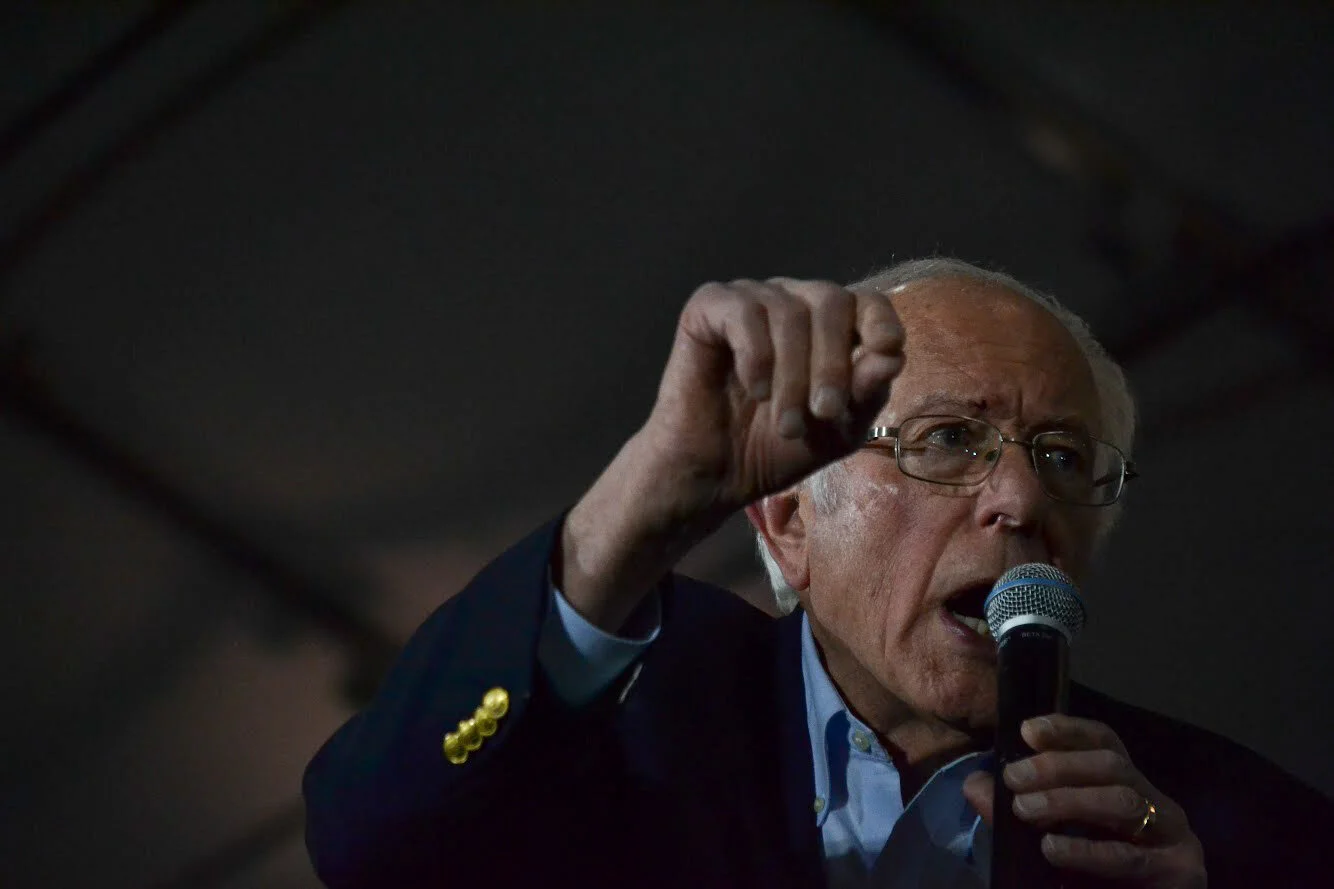And while we’re at it, toss the caucus and dump the delegates.
Bernie Sanders supporters take selfies during a rally in San Jose on March 1, 2020. Photo by Sara Bloomberg.
By Sara Bloomberg
America is supposed to be a democracy. So, why do so many citizens feel like their vote doesn’t count?
Maybe it’s because of widespread voter disenfranchisement.
Maybe it’s because we make it difficult to register, difficult to vote and difficult to keep track of all the varied rules from state to state.
Maybe it’s because the Supreme Court gutted the Voting Rights Act in 2013
There are caucuses, early primaries, open primaries, closed primaries, delegates, superdelegates and the Electoral College.
Five US territories — Puerto Rico, Guam, the US Virgin Islands, the Northern Marianas and American Samoa — vote in the presidential primaries but not in the general election. In California, the Republican primary is closed — only registered Republicans can vote — while the Democratic primary is open to independents (a.k.a., no party preference) who request a Democratic Party ballot.
Then your vote gets bundled up and doled out proportionally to delegates who have pledged to vote on your behalf at the REAL quadrennial nominating event — the Party Convention — where, surprise, there are even more delegates with SUPER voting powers who can ignore the will of the people and vote to nominate any candidate they want.
This year, they just might decide the entire race for us — dooming the Democratic nominee in the process and giving Donald Trump an additional boost towards re-election. Apparently the Democratic Party hasn’t learned its past lessons.
In 1952, the party bosses snubbed popular vote winner Sen. Eugene McCarthy and advanced Adlai Stevenson as the Democratic nominee, who lost to Republican Dwight D. Eisenhower in the fall.
Eisenhower’s running mate? Richard Nixon.
Sixteen years later during the 1968 convention, Democratic party bosses undermined voters again in their attempt to install VP Hubert Humphrey as the nominee.
It backfired.
“That intense conflict, disunity, and intraparty strife completely consumed the Democratic Party convention, crippling the messaging and candidacy of Hubert Humphrey. To say that it spawned lingering resentment within the party and prevented unity heading into the general election is a massive understatement,” Glenn Greenwald explains at The Intercept.
Richard Nixon won a sweeping victory that year.
Vermont Senator Bernie Sanders speaking at a campaign rally in San Jose on March 1, 2020. Photo by Sara Bloomberg.
On Tuesday 14 states, American Samoa and Democrats abroad vote for a nominee in what’s known as Super Tuesday. More than two-thirds of all the delegates needed to clinch a nomination are at stake on Tuesday: 1,357. A candidate needs 1,991 delegates to win.
Three candidates have ended their campaigns in the days leading up to Super Tuesday: billionaire Tom Steyer, former South Bend Mayor Pete Buttigieg and Minnesota Sen. Amy Klobuchar. Buttigieg and Klobuchar subsequently endorsed Biden, joining a cavalry of establishment Democrats throwing their weight behind the former VP.
If Bernie Sanders wins a plurality of votes and delegates during the primaries but fails to scoop up 1,991 pledged delegates, Biden could win the nomination during a convention fight.
“Democratic establishment leaders… are not just worried about Mr. Sanders’s candidacy, but are also willing to risk intraparty damage to stop his nomination at the national convention in July if they get the chance,” the NYT reported at the end of February.
We’ve seen this before.
This undemocratic process repeats itself during the general election when the Electoral College supersedes the popular vote. Which is exactly how Donald Trump won in 2016 despite losing the popular vote to Hillary Clinton by nearly 3 million votes.
Can you imagine voting for mayor or governor that way? Or having scattered, regional general elections that are not tallied up all at once? Of course not, because it’s grossly absurd.
Consolidating all of the primaries and caucuses into one national primary, making Election Day a federal holiday, eliminating all delegates and abolishing the Electoral College won’t end other forms of voter suppression and disenfranchisement, but these are just some of the most straightforward steps we could make towards restoring Americans’ confidence in the power of one-person, one-vote — a.k.a, democracy.

